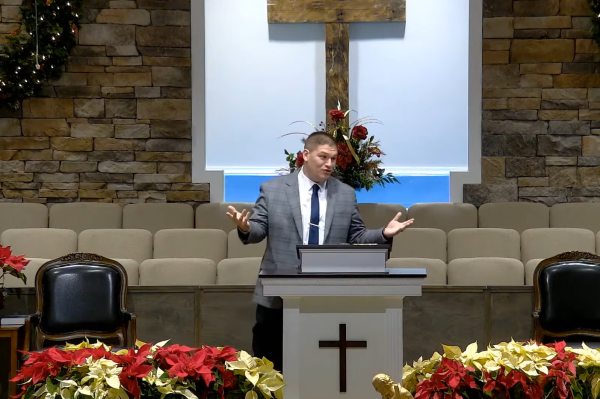Survey: Financial Strain Worsens for More Churches
The economic recession delivered a hard blow to more churches this past year than at the start of the downturn, new research indicates.
Findings from a new survey show that 38 percent of churches reported a decline in giving in 2009. Only 29 percent reported the same the previous year.
"Churches today are in unchartered waters financially," said Brian Kluth, founder of Maximum Generosity, in a statement. "Multiple research projects last year documented the sharp decline in church giving and our research this year shows things have only gotten worse for a growing number of churches."
Kluth partnered with Christianity Today International's Church Finance Today and Leadership publications for the 2010 "State of the Plate" research, which surveyed more than 1,000 church leaders. The first State of the Plate report was launched in 2008.
Among the hardest hit churches this past year were those in Pacific and Mountain states, which experienced a 55 percent and 46 percent decline in giving, respectively.
Surprisingly, megachurches suffered more than ever before. While earlier studies indicated megachurches were faring fairly well in the downturn, the State of the Plate report found that churches with 2,000 or more attendees experienced the most financial strain in 2009 compared to smaller churches. Nearly half (47 percent) of megachurches reported a decline in giving in comparison to 40 percent of churches with 100-499 attendees, 36 percent of congregations with less than 100 people, 35 percent of churches with 500-999 worshippers and 26 percent of churches with 1,000-1,999 attendees.
Even Rick Warren's Saddleback Church, with about 20,000 people attending weekly worship services, ran behind its multimillion-dollar budget before Warren sent out a last-minute email appeal encouraging year-end gifts, the report noted.
Though Warren was able to raise $2.4 million – more than double the goal – in the last days of the year, nearly a third of churches overall missed their expectations when it came to year-end giving. Many churches thus likely entered 2010 looking for ways to slow their church spending, the report noted.
Among some of the first cuts churches are likely to make are staff travel and programs. In 2009, 26 percent of surveyed churches said they cut travel and conferences and 21 percent reported cutting ministry programs after decreasing their budget. Meanwhile, 18 percent reported cutting out expenses connected to facilities/maintenance/utilities and expansion or renovation projects. Staff cuts followed with 16 percent saying they eliminated part-time positions and 15 percent reporting getting rid of full-time positions.
"When times are good and money is flowing it's easy for a church or parachurch organization to start another new program and really not circle back and say 'I wonder how well those programs are doing,'" Dan Busby, president of Evangelical Council for Financial Accountability, commented to The Christian Post before Tuesday's release of the survey findings.
Though the current economy may have strained finances for many churches, Busby believes the recession also has a positive effect to it.
"It's hard to say especially if you're somebody who's going through it but I think it's been good for churches and parachurch organizations," said Busby, who was recognized by 12 percent of surveyed church leaders for providing resources and expert advice related to church finances and budgets.
"I think the organizations are operating leaner and are more focused and are better prepared for the future so if the Lord prospers churches and charities and provides additional funds I think they'll be in a better position to use those funds for their core ministries and I think they'd be more effective."
Nearly a quarter of surveyed churches said they kept their budget about the same this year as last year. Thirty-five percent increased the current year's budget one to 10 percent and 25 percent decreased their budget one to 10 percent.
The annual church operating budget for 23 percent of churches is $100,000 to $250,000. Sixteen percent reported a budget of $250,000 to $500,000 and 10 percent said their operating budget is $1 million to $2 million.
A majority of the church leaders said they plan on preaching on finances and generosity and offering financial classes and pamphlets. More than half are relying on Dave Ramsey and Crown Financial Ministries to help with church finances, giving and generosity and around two in five are looking to denominational resources and Kluth to help them out.
Despite money struggles, 31 percent of churches increased their benevolence giving to help people in their church and community facing critical financial needs and 30 percent upped giving to missions.






















